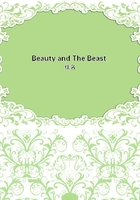
第80章 MRS. STRONGITHARM'S REPORT.(2)
It was generally known that she was on the ground. In fact, she spent most of the time while Messrs. Wrangle and Tumbrill were speaking, in walking about through the crowds--so after an hour apiece for the gentlemen, and then fifteen minutes apiece for a rejoinder, and the Star Spangled Banner from the band, for both sides, we were not a bit surprised to hear a few cries of "Whiston!" from the audience. Immediately we saw the compact gray bonnet and brown serge dress (she knew what would go through a crowd without tearing!) splitting the wedge of people on the steps leading to the platform. I noticed that the two Congressional candidates looked at each other and smiled, in spite of the venomous charges they had just been making.
Well--I won't attempt to report her speech, though it was her most splendid effort (as people WILL say, when it was no effort to her at all). But the substance of it was this: after setting forth woman's wrongs and man's tyranny, and taxation without representation, and an equal chance, and fair-play, and a struggle for life (which you know all about from the other conventions), she turned squarely around to the two candidates arid said:
"Now to the practical application. You, Mr. Wrangle, and you, Mr.
Tumbrill, want to be elected to Congress. The district is a close one: you have both counted the votes in advance (oh, I know your secrets!) and there isn't a difference of a hundred in your estimates. A very little will turn the scale either way. Perhaps a woman's influence--perhaps my voice--might do it. But I will give you an equal chance. So much power is left to woman, despite what you withhold, that we, the women of Putnam, Shinnebaug, and Rancocus counties, are able to decide which of you shall be elected. Either of you would give a great deal to have a majority of the intelligent women of the District on your side: it would already be equivalent to success. Now, to show that we understand the political business from which you have excluded us--to prove that we are capable of imitating the noble example of MEN--we offer to sell our influence, as they their votes, to the highest bidder!"There was great shouting and cheering among the people at this, but the two candidates, somehow or other, didn't seem much amused.
"I stand here," she continued, "in the interest of my struggling sisters, and with authority to act for them. Which of you will bid the most--not in offices or material advantages, as is the way of your parties, but in the way of help to the Woman's Cause? Which of you will here publicly pledge himself to say a word for us, from now until election-day, whenever he appears upon the stump?"There was repeated cheering, and cries of "Got 'em there!" (Men are so vulgar).
I pause for a reply. Shall they not answer me?" she continued, turning to the audience.
"Then there were tremendous cries of "Yes! yes! Wrangle! Tumbrill!"Mr. Wrangle looked at Mr. Tumbrill, and made a motion with his head, signifying that he should speak. Then Mr. Tumbrill looked at Mr. Wrangle, and made a motion that HE should speak. The people saw all this, and laughed and shouted as if they would never finish.
Mr. Wrangle, on second thoughts (this is my private surmise), saw that boldness would just then be popular; so he stepped forward.
"Do I understand," he said, "that my fair and eloquent friend demands perfect political and civil equality for her sex?""I do!" exclaimed Selina Whiston, in her firmest manner.
"Let me be more explicit," he continued. "You mean precisely the same rights, the same duties, the same obligations, the same responsibilities?"She repeated the phrases over after him, affirmatively, with an emphasis which I never heard surpassed.
"Pardon me once more," said Mr. Wrangle; "the right to vote, to hold office, to practise law, theology, medicine, to take part in all municipal affairs, to sit on juries, to be called upon to aid in the execution of the law, to aid in suppressing disturbances, enforcing public order, and performing military duty?"Here there were loud cheers from the audience; and a good many voices cried out: "Got her there!" (Men are so very vulgar.)Mrs. Whiston looked troubled for a moment, but she saw that a moment's hesitation would be fatal to our scheme, so she brought out her words as if each one were a maul-blow on the butt-end of a wedge:
"All--that--we--demand!"
"Then," said Mr. Wrangle, "I bid my support in exchange for the women's! Just what the speaker demands, without exception or modification--equal privileges, rights, duties and obligations, without regard to the question of sex! Is that broad enough?"I was all in a tremble when it came to that. Somehow Mr. Wrangle's acceptance of the bid did not inspire me, although it promised so much. I had anticipated opposition, dissatisfaction, tumult. So had Mrs. Whiston, and I could see, and the crowd could see, that she was not greatly elated.
Mr. Wrangle made a very significant bow to Mr. Tumbrill, and then sat down. There were cries of "Tumbrill!" and that gentleman--none of us, of course, believing him sincere, for we knew his private views--came forward and made exactly the same pledge. I will do both parties the justice to say that they faithfully kept their word; nay, it was generally thought the repetition of their brief pleas for woman, at some fifty meetings before election came, had gradually conducted them to the belief that they were expressing their own personal sentiments. The mechanical echo in public thus developed into an opinion in private. My own political experience has since demonstrated to me that this is a phenomenon very common among men.